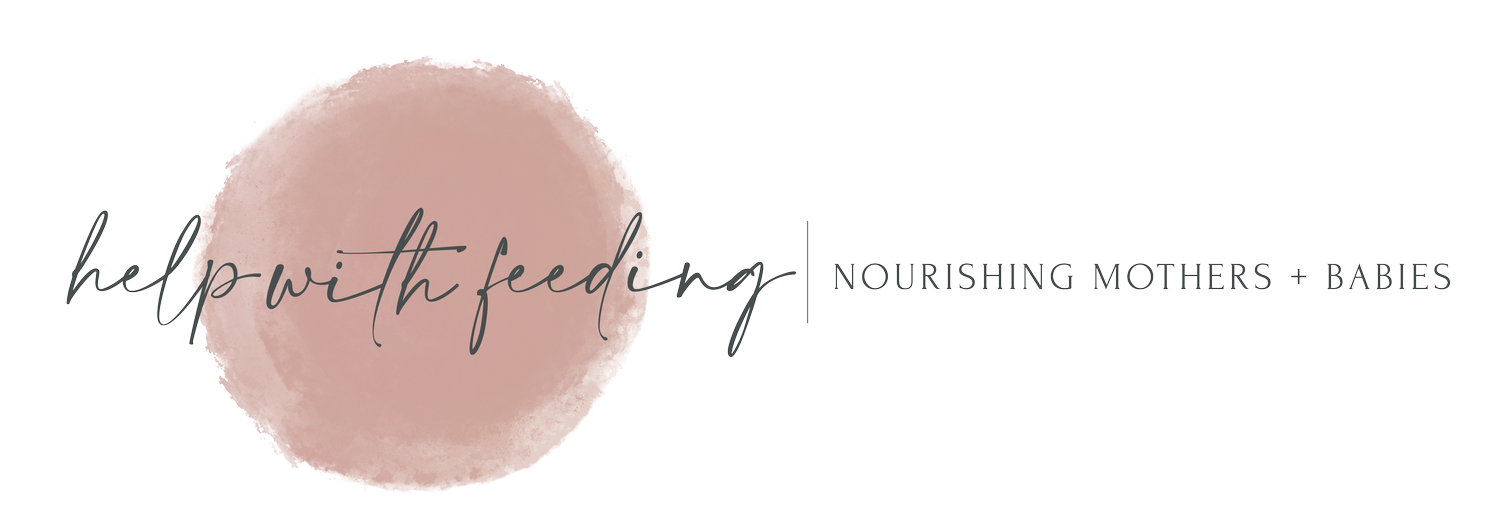When Your Baby Isn’t Gaining
“Your baby isn’t gaining enough weight.”
Whether those words are spoken in the first few days of life or several months later, the agony is the same.
Many times parents come to me feeling completely heartbroken and confused; they thought things were going well and there wasn’t any other clear sign that it wasn’t. How could we not know? What were we doing wrong?
Being told that your baby isn’t gaining enough weight can cause even the most experienced parent lose confidence.
Feeding is complex. Whether you’re breast- and/or bottle-feeding a new baby, there’s a huge learning curve. Your newborn is just transitioning to life on the outside and feeding requires her to be awake and calm, have good coordination for sucking and swallowing, and cues to help you know when she’s hungry and when she’s full. There are SO many reasons why feeding can be more difficult than you would expect and not a single one of them is related to you NOT trying your best to figure out this messy and complicated process of nourishing your tiny human.
Here are some tips to get you through this challenging time:
Keep working on learning your baby’s cues and FOLLOWING YOUR INSTINCTS; those are your superpowers.
Provide as much skin-to-skin and holding of your baby as possible - share this responsibility with your partner and any other family members or friends willing to help.
Connect with a feeding specialist (lactation consultant, speech pathologist, or occupational therapist) and work together to create a manageable feeding plan to help your baby gain skills and weight, while taking the worry off of your shoulders.
Some other things to keep in mind…
Keeping feeding times to no longer than 30-40 minutes is important for helping your baby learn eat, sleep, and awake patterns as well as gain weight.
It’s not effective to feed your baby tiny amounts all day long; this is exhausting for baby and for you, and will not improve feeding long term. Aiming to get between 1.5-2 hours between most feedings for newborns is important.
Triple feeding (offering the breast, pumping, then the bottle), should only be a temporary strategy (1-2 weeks) to improve your supply and help baby become more efficient at the breast. Consult a feeding specialist if your baby is unable to transfer milk even when you have a good supply.
Supplementing with the bottle can be done very effectively to support progress at the breast, but having the RIGHT BOTTLE SYSTEM and making sure your baby is latching well on the bottle is also important.
Knowing “how much” your baby should be eating is really important, especially if you’re supplementing with the bottle. The amount your baby needs is based on your baby’s weight and there’s a lot of conflicting information out there.
To help you through this time, I’ve created this helpful chart which illustrates that newborns should be fed small amounts and more frequently (10-12 times in 24 hours). This will decrease to 8-10 feedings within the first month, but every baby is different! Allow yourself to be a beginner in this new role and with THIS baby.
As always, please reach out and connect with me if you need more support! You should NOT go through this alone.


